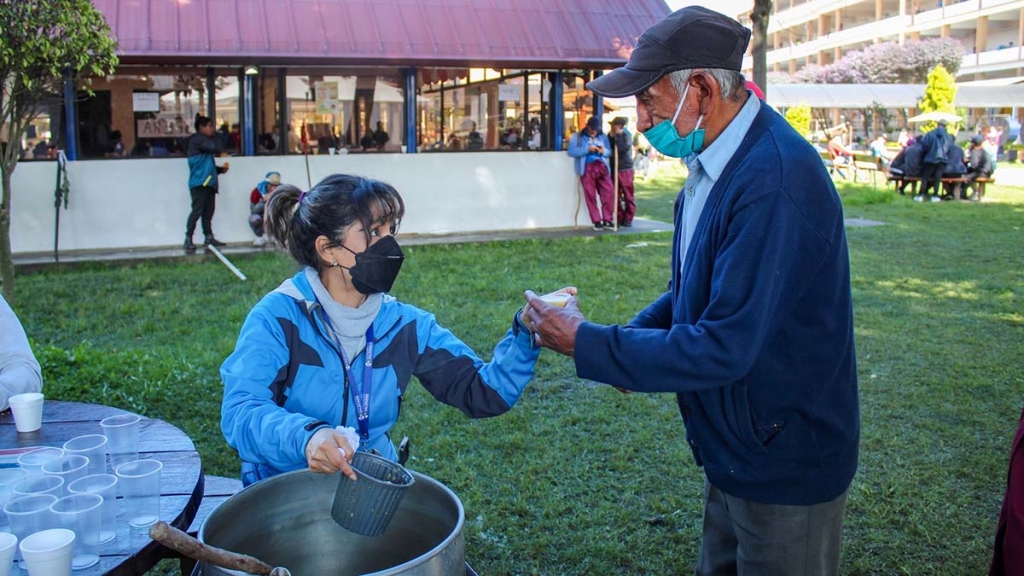ECUADOR: Indigenous people receive aid during strike

Salesian Polytechnic University provides humanitarian aid to Indigenous communities
(MissionNewswire) The El Girón campus of Salesian Polytechnic University in Quito, Ecuador, provided humanitarian aid for Indigenous people from the highlands who have moved to the capital due to the national strike. The aid event focused primarily on women, children and the elderly. More than 700 emergencies have been addressed, 5,000 people a day have been fed, and close to 50 children have been helped.
“In the spirit of our commitment to the social sectors, we reiterate that Salesian Polytechnic University, in its humanistic and Christian-inspired character, is at the service of the common good, seeking to make dialogue prevail as the main mechanism for resolving conflicts, in order to avoid actions that exacerbate violence and repression,” said Father Juan Cárdenas, Salesian Polytechnic University rector.
For the event, 200 volunteers, including faculty, students and administrative staff, organized themselves into relief groups. A medical aid station was set up in the campus cafeteria, made possible by the collaboration of the Ecuadorian Red Cross, UTE University, the Pontifical Catholic University of Ecuador, the Universidad Central del Ecuador, Medial CAZBA Foundation and Salesian Polytechnic University personnel.
Kitchens and tables for food distribution were set up nearby. The university’s pastoral area was transformed into a welcoming space for children and older youth thanks to student volunteers and teachers from the psychology and early childhood education courses. Classrooms have been adapted to receive donations, and students are in charge of organizing them.
Fr. Cárdenas said, “The university opened its campus to provide health care, food and shelter to the most vulnerable groups in Quito’s communities. The academy is a space for the construction of knowledge, but also for the search for peace. As social actors, we have expressed our concern about this crisis in different media and platforms, and we continue to seek dialogue as the best way to reach agreements for the common good.”
Ecuador is one of the most inequitable societies in the world, according to UNICEF. The richest 20 percent of the population receives almost 50 percent of the national income, while the poorest 20 percent receives only 5 percent. According to the World Food Program, almost 26 percent of all children under age 5 have stunted growth, increasing to 31 percent in rural areas and 47 percent in Indigenous communities.
Close to 20 percent of Ecuador’s population is people of Indigenous heritage. For poor, rural and Indigenous youth, education provides the best opportunity for finding employment, reducing inequities and breaking the cycle of poverty. Salesian missionaries have been providing education and other social programs for disadvantaged youth across Ecuador for more than 125 years.
###
Sources:
ANS Photo (usage permissions and guidelines must be requested from ANS)
ANS – Ecuador – Salesian Polytechnic University of Quito assists indigenous communities
Salesian Missions – Ecuador
Salesian Polytechnic University
UNICEF – Ecuador





